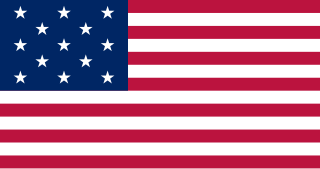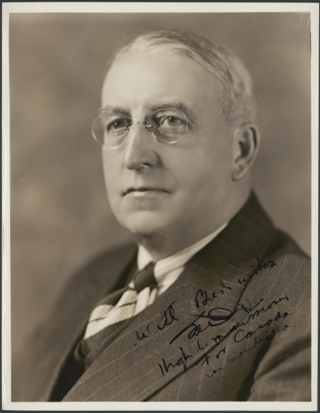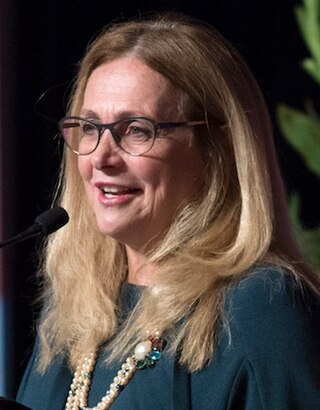
The Supreme Court of Canada is the highest court in the judicial system of Canada. It comprises nine justices, whose decisions are the ultimate application of Canadian law, and grants permission to between 40 and 75 litigants each year to appeal decisions rendered by provincial, territorial and federal appellate courts. The Supreme Court is bijural, hearing cases from two major legal traditions and bilingual, hearing cases in both official languages of Canada.
The Canadian order of precedence is a nominal and symbolic hierarchy of important positions within the governing institutions of Canada. It has no legal standing, but is used to dictate ceremonial protocol.

The Territory South of the River Ohio, more commonly known as the Southwest Territory, was an organized incorporated territory of the United States that existed from May 26, 1790, until June 1, 1796, when it was admitted to the United States as the State of Tennessee. The Southwest Territory was created by the Southwest Ordinance from lands of the Washington District that had been ceded to the U.S. federal government by North Carolina. The territory's lone governor was William Blount.

The Indiana Territory, officially the Territory of Indiana, was created by an organic act that President John Adams signed into law on May 7, 1800, to form an organized incorporated territory of the United States that existed from July 4, 1800, to December 11, 1816, when the remaining southeastern portion of the territory was admitted to the Union as the state of Indiana. The territory originally contained approximately 259,824 square miles (672,940 km2) of land, but its size was decreased when it was subdivided to create the Michigan Territory (1805) and the Illinois Territory (1809). The Indiana Territory was the first new territory created from lands of the Northwest Territory, which had been organized under the terms of the Northwest Ordinance of 1787. The territorial capital was the settlement around the old French fort of Vincennes on the Wabash River, until transferred to Corydon near the Ohio River in 1813.

Sir Frederick William Alpin Gordon Haultain was a lawyer and a long-serving Canadian politician and judge. His career in provincial and territorial legislatures stretched into four decades. He served as the first premier of the North-West Territories from 1897 to 1905 as is recognized as having a significant contribution towards the creation of the provinces of Alberta and Saskatchewan. From 1905 on he served as Leader of the Official Opposition in Saskatchewan as well as Leader of the Provincial Rights Party. His legislative career ended when he was appointed to the judiciary in 1912.

The Supreme Court of Yukon is the superior court having general jurisdiction for the Canadian territory of Yukon. Civil and criminal cases are heard by the court, as well as appeals from the Yukon Territorial Court, the Yukon Small Claims Court and other quasi-judicial boards. The court is based in Whitehorse. Appeals from the court are made to the Court of Appeal of Yukon.
Puisne judge and puisne justice are terms for an ordinary judge or a judge of lesser rank of a particular court. The term comes from a combination of the two French words, puis, "since, later" + né, and "born", which have been combined as French: puisné or puîné; meaning "junior".
The court system of Canada is made up of many courts differing in levels of legal superiority and separated by jurisdiction. In the courts, the judiciary interpret and apply the law of Canada. Some of the courts are federal in nature, while others are provincial or territorial.
William Alexander Stevenson was a Puisne Justice of the Supreme Court of Canada from 1990 to 1992.
Federal tribunals in the United States are those tribunals established by the federal government of the United States for the purpose of resolving disputes involving or arising under federal laws, including questions about the constitutionality of such laws. Such tribunals include both Article III tribunals as well as adjudicative entities which are classified as Article I or Article IV tribunals. Some of the latter entities are also formally denominated as courts, but they do not enjoy certain protections afforded to Article III courts. These tribunals are described in reference to the article of the United States Constitution from which the tribunal's authority stems. The use of the term "tribunal" in this context as a blanket term to encompass both courts and other adjudicative entities comes from section 8 of Article I of the Constitution, which expressly grants Congress the power to constitute tribunals inferior to the Supreme Court of the United States.

The Court of King's Bench of Alberta is the superior trial court of the Canadian province of Alberta. During the reign of Elizabeth II, it was named Court of Queen's Bench of Alberta.
The Court of Appeal for the Northwest Territories in Canada is the highest appellate court which hears appeals from criminal cases and civil cases of the Supreme Court of the Northwest Territories.
The Supreme Court of the Northwest Territories is the name of two different superior courts for the Canadian territory of the Northwest Territories, which have existed at different times.
J. Edward "Ted" Richard is a former territorial level politician, lawyer and senior judge of the Supreme Court of the Northwest Territories. Richards, a former lawyer, was a partner in the law firm of Richard, Vertes, Peterson & Schuler in Yellowknife, Northwest Territories. He practised private law until 1988.

Thomas Clayton Davis was a lawyer, judge, diplomat and political figure in Saskatchewan. He represented Prince Albert in the Legislative Assembly of Saskatchewan from 1925 to 1939 as a Liberal.
Wilfred George Brown was the commissioner of Yukon from 1952 to 1955.
The Honourable or The Honorable is an honorific style that is used as a prefix before the names or titles of certain people, usually with official governmental or diplomatic positions.

Sheilah L. Martin is a puisne justice of the Supreme Court of Canada, having served in that role since December 18, 2017. She was nominated to the court by Prime Minister Justin Trudeau on November 29, 2017. Before her appointment to Canada's highest court, Martin had served on the Court of Appeal of Alberta, the Court of Appeal for the Northwest Territories, and the Court of Appeal of Nunavut since 2016, and the Court of Queen's Bench of Alberta from 2005 to 2016.







